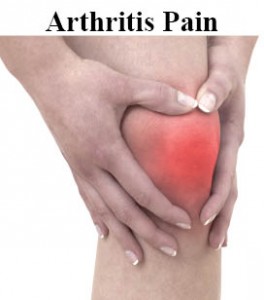 Hyaluronic acid is an organic substance that naturally occurs in the human body, specifically throughout the neural, connective, and epithelial tissues. As we age, our bodies produce less of this compound and this leads to wrinkling of the skin and weaker hip and knee joints. In response, dermatologists inject hyaluronic acid as a skin filler to smooth away those fine lines around the eyes and mouth. Meanwhile, physicians treat aging patients who suffer from a degenerative joint disease or osteoarthritis with regular injections of the purer form of this substance.
Hyaluronic acid is an organic substance that naturally occurs in the human body, specifically throughout the neural, connective, and epithelial tissues. As we age, our bodies produce less of this compound and this leads to wrinkling of the skin and weaker hip and knee joints. In response, dermatologists inject hyaluronic acid as a skin filler to smooth away those fine lines around the eyes and mouth. Meanwhile, physicians treat aging patients who suffer from a degenerative joint disease or osteoarthritis with regular injections of the purer form of this substance.
Initially, hyaluronic acid wasn’t viable as an oral medication because it loses its potency once it comes in contact with stomach fluids that have a stronger acidity than this substance. Yet, years of research and development paid off and we now have hyaluronic acid supplements that can be taken orally by both humans and animals. Along with these oral supplements, local injections that stimulate growth in connective tissue have become extremely popular among elderly patients who use it as part of their treatment for arthritis and among people with aged pets suffering from hip dysplasia.
This treatment is frequently used to help people whose bodies cannot assimilate non-steroidal anti-inflammatory drugs (NSAIDs), such as Ibuprofen. It also helps people who cannot tolerate certain substances or ingredients in prescriptive drugs that cause them to suffer through severe side effects, such as stomach bleeding. Hyaluronic acid injections represent a viable alternative to relieving joint pain and stiffness. According to patients who underwent this kind of treatment, the injections helped them do all those activities they were not able to do before because of arthritis.
 Usually, the hyaluronic acid works either as a shock absorber or lubricant, therefore reducing the misery of joint pain in a short period after each injection. Compared to other painkillers and anti-arthritis drugs, hyaluronic acid supplements and injections provided immediate pain relief to at least 28 percent of those patients who were treated during clinical trials. In reality, the effectiveness of this treatment actually benefits around 28 to 54 percent of patients living with joint pain.
Usually, the hyaluronic acid works either as a shock absorber or lubricant, therefore reducing the misery of joint pain in a short period after each injection. Compared to other painkillers and anti-arthritis drugs, hyaluronic acid supplements and injections provided immediate pain relief to at least 28 percent of those patients who were treated during clinical trials. In reality, the effectiveness of this treatment actually benefits around 28 to 54 percent of patients living with joint pain.
Nevertheless, there have been many cases where people’s bodies responded to hyaluronic acid in different ways and with varying impacts to their overall health. This disparity makes the results of several clinical studies highly inconclusive, which is why doctors only recommend this treatment for severe cases of arthritic pain.
For this treatment to be effective in the end, the patient must endure weekly visits to the clinic where a local injection of this substance is administered. After three to five weeks of treatment, patients will notice significant changes in their condition, such as less frequent attacks of arthritic pain and greater flexibility in their joints. Given that hyaluronic acid naturally occurs in the human body, these injections present little to no harm at all for the patient’s health. In addition, there’s nearly zero probability of encountering any major side effect during therapy.

Leave a Reply